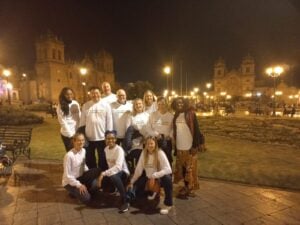Traveling, working, and volunteering abroad can be an incredibly enriching and transformative experience. The opportunity to immerse oneself in different cultures, make a positive impact, and expand personal and professional horizons is unparalleled.
We will explore the perfect blend of balancing travel, work, and volunteering abroad, and how it can lead to personal growth, cultural understanding, and sustainable tourism.
Travel, work, and volunteering are three aspects that seem to be independent of each other, but when combined, they create a unique and fulfilling experience. While travel allows us to explore new places and broaden our perspectives, working abroad enables us to gain valuable professional experience and build international networks. On the other hand, volunteering provides an opportunity to give back to communities, make a difference, and create lasting memories.
The Appeal of Volunteering Abroad
Volunteering abroad is becoming increasingly popular due to the numerous benefits it offers. It goes beyond being a tourist and allows individuals to actively participate in the local community. By engaging in volunteer work, travelers have the chance to make a positive impact, gain a deeper cultural understanding, and experience personal growth.
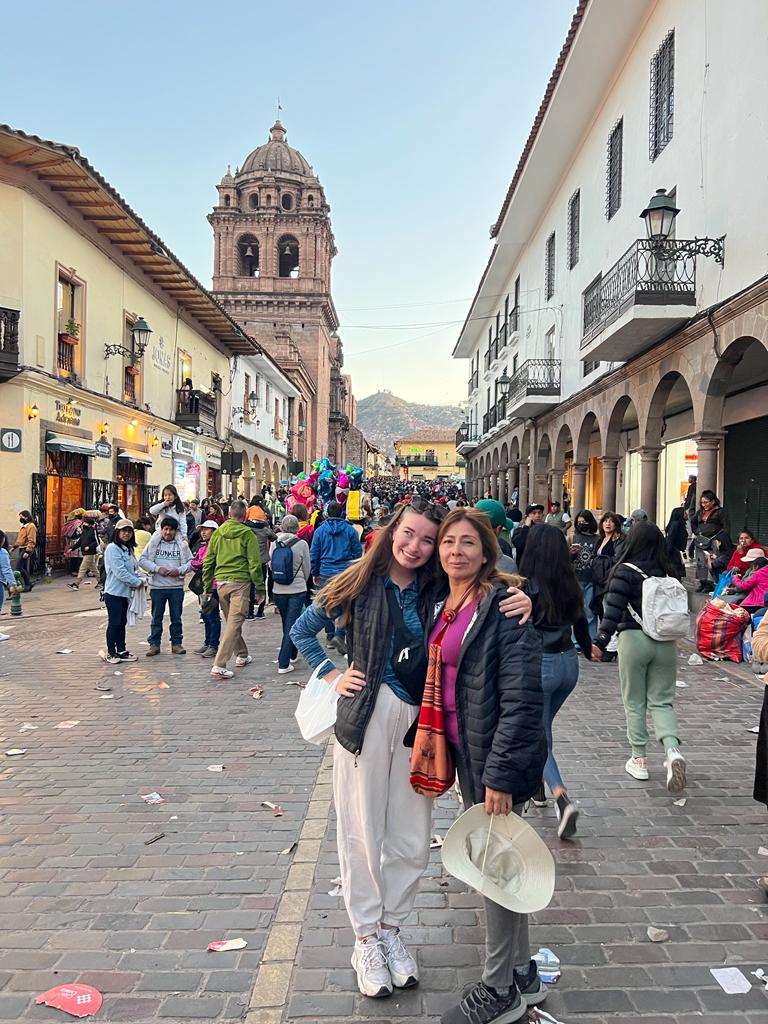
Understanding the Benefits of Volunteering Abroad
Volunteering abroad is a fulfilling experience that allows you to have a positive impact on local communities while also immersing yourself in new cultures. Let’s explore the various benefits of volunteering abroad:
1. Making a Positive Impact
Volunteering abroad provides an opportunity to make a real difference in the lives of others. Whether you’re working with underprivileged communities, teaching English to children, or participating in environmental conservation projects, your efforts can have a profound and lasting impact on the local community. By contributing your skills and time, you can help improve the lives of others and make the world a better place.
2. Cultural Immersion
Volunteering abroad allows you to immerse yourself in a different culture and gain a deeper understanding of its customs, traditions, and way of life. By engaging with locals on a day-to-day basis, you can learn about their beliefs, values, and perspectives. This cultural exchange broadens your horizons, develops a more global mindset, and fosters a deeper appreciation for diversity.
3. Personal Growth
Volunteering abroad is a transformative experience that leads to personal growth and self-discovery. Stepping out of your comfort zone and immersing yourself in a new environment challenges you to adapt, learn new skills, and develop resilience. You’ll encounter new situations, overcome obstacles, and push your limits, leading to personal growth and increased self-confidence. Additionally, volunteering abroad provides opportunities for leadership development, teamwork, and problem-solving skills.
Overall, volunteering abroad offers a range of benefits, from making a positive impact on communities to immersing yourself in a new culture and fostering personal growth. By choosing to volunteer abroad, you not only contribute to society’s betterment but also gain valuable experiences and skills that will stay with you for a lifetime.
Choosing the Right Volunteer Program
When it comes to volunteering abroad, choosing the right program is crucial. It can make all the difference in your experience and the impact you make. With countless organizations and opportunities to choose from, it’s important to do your research and find a program that aligns with your skills, interests, and values.

Researching Organizations
Before committing to a volunteer program, take the time to research different organizations.
- Read reviews and testimonials from past volunteers to get a sense of the organization’s reputation and the experiences of others.
- Check if the organization is registered or accredited by relevant authorities or international affiliations to ensure their credibility.
Matching Your Skills and Interests
Consider your skills, qualifications, and personal interests when choosing a volunteer program.
- Identify the specific skills you can bring to the table and find opportunities that allow you to utilize and develop those skills.
- Aligning your passions and interests with the program will help you stay motivated and make a meaningful impact.
Considering Time Commitment and Financial Constraints
It’s important to consider the time commitment required for each program.
- Assess your availability and choose a program that fits your schedule and responsibilities back home.
- Consider your financial constraints. Some programs may cover accommodation and meals, while others may require you to bear the costs. Calculate your budget and choose a program that is realistic and feasible for you.
Overall, choose a volunteer program that aligns with your values and goals. It’s important to feel passionate and connected to the work you will be doing. Remember that the impact you make as a volunteer goes beyond the duration of your program; it can have long-lasting effects on the community and yourself. Take the time to research, evaluate your skills and interests, and consider your time and financial constraints. By choosing the right program, you can maximize your experience and make a meaningful contribution to the community you serve.
Managing Work Responsibilities While Abroad
Managing work responsibilities while abroad can be challenging, but with proper planning and communication, it is possible to strike a balance between your professional obligations and your volunteer work. Here are some strategies and tips to help you effectively manage your work responsibilities while volunteering abroad.
1. Communicating with Your Employer:
- Inform your employer about your intention to volunteer abroad and the duration of your absence.
- Discuss how your work will be managed in your absence, including the possibility of delegating tasks or hiring a temporary replacement.
- Set up a reliable communication channel to stay connected with your colleagues and receive work updates.
- Clearly define expectations and deliverables for your work while abroad.
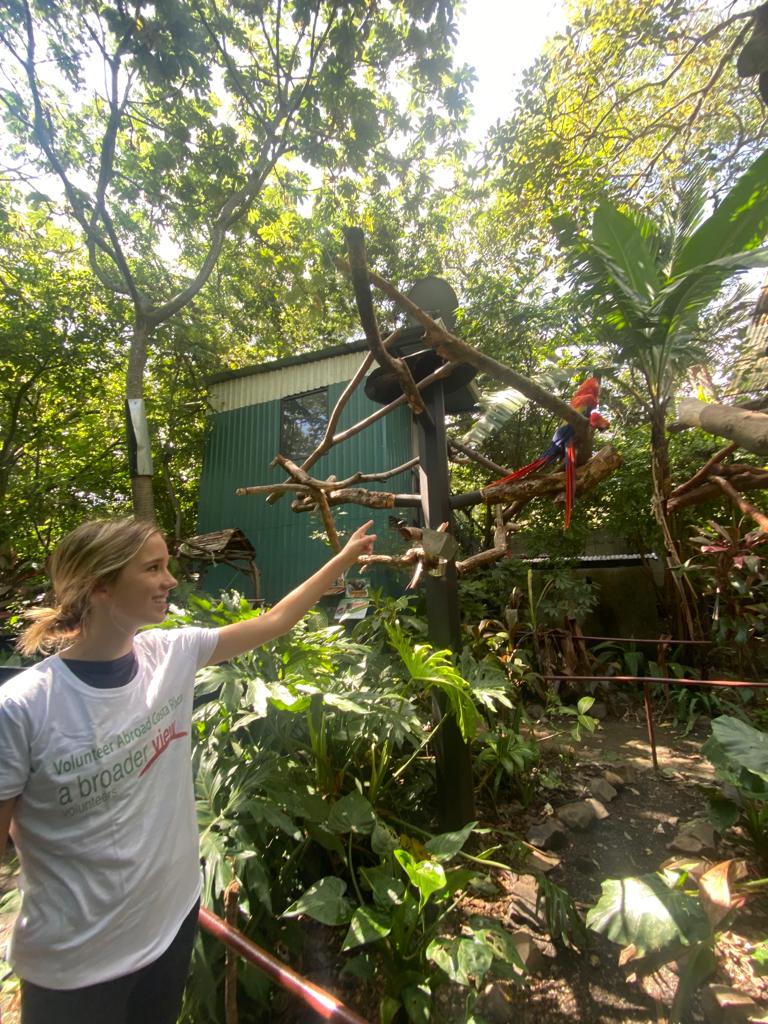
2. Setting Clear Expectations:
- Recognize and communicate any limitations you may face, such as unreliable internet access or time zone differences.
- Agree on working hours that are feasible for you based on your volunteer schedule and time zone differences.
- Prioritize tasks and projects that need immediate attention while abroad to maintain productivity and meet your work responsibilities.
3. Establishing Remote Work Arrangements:
- Check if you have access to a reliable internet connection and necessary work tools at your volunteer location.
- Create a dedicated workspace in your volunteer accommodation to separate work and volunteer activities.
- Establish a daily routine that includes dedicated time for work and balance your commitments effectively.
- Stay disciplined and motivated by setting goals and deadlines and avoiding distractions.
By effectively managing your work responsibilities while volunteering abroad, you can fulfill your professional commitments while making a positive impact through your volunteer work. With proper communication, clear expectations, and remote work arrangements, you can strike a balance and make the most out of your experience.
Creating a Travel and Volunteer Itinerary
Creating a travel and volunteer itinerary is a crucial step in balancing your travel, work, and volunteer activities abroad. This guide will provide you with a comprehensive way to plan and organize your itinerary to ensure a smooth and fulfilling experience.
Identifying Preferred Destinations
The first step in creating a travel and volunteer itinerary is to identify your preferred destinations. Research the countries or regions you have always wanted to visit. Consider their culture, history, tourist attractions, and available volunteer opportunities. Create a list of your top choices and prioritize them based on your interests and the type of volunteering work you want to do.
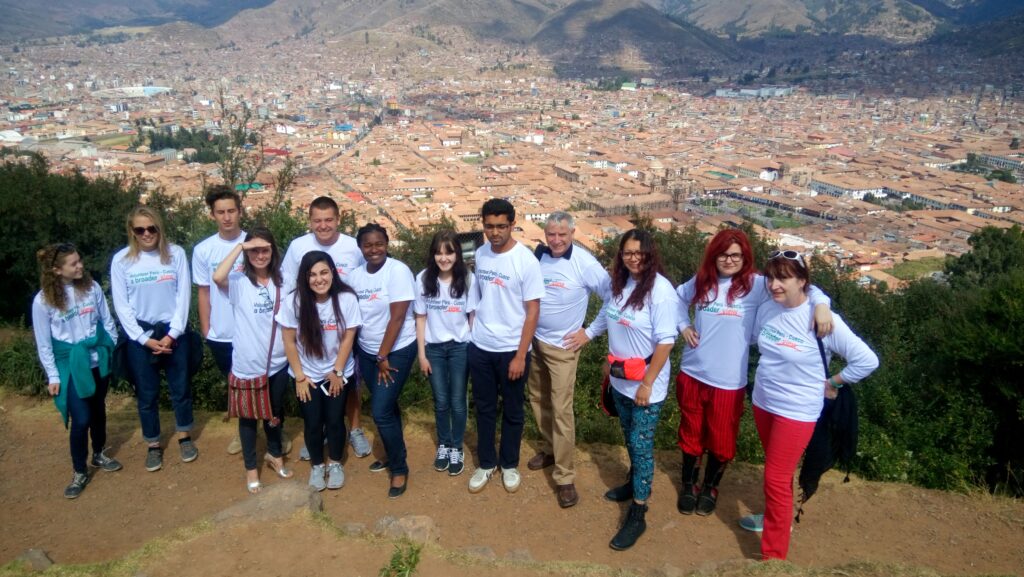
Scheduling Work and Volunteer Commitments
Once you have identified your preferred destinations, determine how long you will stay in each place and allocate specific time for both work and volunteering commitments. Take into account the duration of your volunteer program and the number of hours you will be working remotely. This will help you plan how much time you can dedicate to each activity and ensure proper scheduling.
Consider the project requirements and availability of the volunteer program when scheduling your itinerary. Some programs have specific start and end dates, while others offer more flexibility. Align your travel plans with the volunteering opportunities to make the most of your time abroad.
Allowing for Leisure and Exploration
While work and volunteering are important, make sure to allow yourself time for leisure and exploration. Traveling to new places provides opportunities for personal growth and cultural immersion. Include time in your itinerary to visit tourist attractions, explore local markets, try traditional cuisine, and interact with locals. This will give you a well-rounded experience and create memories beyond your work and volunteering commitments.
In summary, creating a travel and volunteer itinerary involves identifying preferred destinations, scheduling work and volunteer commitments, and allowing for leisure and exploration. Strive for a balance between your professional responsibilities and your desire to explore new places. By carefully planning your itinerary, you can make the most of your travel, work, and volunteering experience, creating a well-rounded and fulfilling journey.
Practical Tips for Balancing Travel, Work, and Volunteering
When it comes to balancing travel, work, and volunteering, it’s important to have a plan in place to ensure you can make the most of your experiences while still effectively managing your responsibilities. Here are some practical tips to help you find the perfect blend of travel, work, and volunteering:
1. Time Management Techniques:
- Create a schedule: One of the key aspects of balancing travel, work, and volunteering is effective time management. Create a detailed schedule that includes dedicated time for work, volunteering, and travel activities. This will help you prioritize your tasks and ensure you have enough time for everything.
- Set realistic deadlines: It’s important to set realistic deadlines for your work and volunteering commitments. Be mindful of the time it takes to complete tasks and make sure you allow enough time for any unexpected delays or challenges that may arise.
- Use productivity tools: Utilize productivity tools such as time-tracking apps, project management software, and task lists to help you stay organized and focused. These tools can help you prioritize tasks, set reminders, and track your progress, ensuring you stay on top of your responsibilities.
2. Maintaining Work-Life Balance:
- Set boundaries: Establish clear boundaries between your work, volunteering, and personal time. Determine specific hours or days dedicated solely to work, and make a conscious effort to disconnect and prioritize self-care and relaxation during your personal time.
- Delegate tasks: If possible, delegate some of your work responsibilities to colleagues or team members. This can help lighten your workload and free up time for travel and volunteering activities.
- Practice self-care: Balancing travel, work, and volunteering can be physically and mentally demanding. Remember to take care of yourself by getting enough rest, eating well, and engaging in activities that help you relax and rejuvenate.
3. Avoiding Burnout:
- Take breaks: Incorporate regular breaks into your schedule to avoid burnout. Whether it’s a short walk, a yoga session, or simply taking a few minutes to disconnect and recharge, breaks can help improve productivity and prevent mental exhaustion.
- Set realistic expectations: It’s important to set realistic expectations for yourself and others. Remember that you can’t do everything, and it’s okay to ask for help or adjust your plans if needed.
- Prioritize self-reflection: Regularly take the time to reflect on your experiences and assess your well-being. Pay attention to any signs of burnout or excessive stress and make necessary adjustments to restore balance.
4. Stay Organized:
- Plan ahead: Plan your travel and volunteer commitments well in advance to ensure you can effectively manage your work responsibilities. This will also give you the opportunity to properly research and prepare for your experiences.
- Keep important documents and information organized: Make sure you have all the necessary documents, such as passports, visas, and work permits, organized and readily accessible. This will save you time and stress while you’re on the go.
- Utilize digital tools: Take advantage of digital tools such as travel apps, cloud storage, and communication platforms to help you stay organized and connected while you’re abroad.
Balancing travel, work, and volunteering is all about finding the right balance and being proactive in managing your time and responsibilities. By implementing these practical tips, you can make the most of your experiences, positively impact the communities you visit, and achieve personal growth and development in the process.
Connecting with Local Communities
When volunteering abroad, one of the most rewarding experiences is connecting with the local communities. Here are some key strategies to connect with local communities while volunteering:
1. Learning the Local Language
One of the best ways to connect with locals is by learning the local language. Even if you only learn a few basic phrases, the effort shows respect and a genuine interest in the culture. Consider taking language lessons or using language learning apps to improve your proficiency.
2. Engaging with Local Customs and Traditions
Respecting and engaging with local customs and traditions is crucial for connecting with the community. Take the time to understand and participate in local customs, festivals, and celebrations. Immersing yourself in the local culture shows your appreciation and willingness to embrace their way of life.
3. Building Meaningful Relationships
Building genuine relationships with locals is one of the most fulfilling aspects of volunteering abroad. Take the initiative to connect with people in your volunteer program, as well as those in the local community. Attend social gatherings, participate in community events, and seek opportunities to engage with locals outside of your volunteering responsibilities.
Approach connecting with local communities with humility, respect, and an open mind. Remember that you are a guest in their country, and it’s essential to be sensitive to their customs, traditions, and way of life. Avoid preconceived notions or judgments and instead embrace the opportunity to learn and grow from your interactions.
Connecting with local communities not only enriches your own experience but also contributes to positive change and sustainable development. By building relationships, you gain a better understanding of the local culture and contribute to the empowerment of the community and their long-term growth.
In conclusion, connecting with local communities is a crucial aspect of volunteering abroad. By learning the local language, engaging with customs and traditions, and building meaningful relationships, you can truly immerse yourself in the culture and make a lasting impact.
The Impact of Balancing Travel, Work, and Volunteering
Balancing travel, work, and volunteering has a significant impact on individuals, communities, and society. This section will discuss the ways in which this balance creates a positive impact.
Personal Development and Growth
- Balancing travel, work, and volunteering promotes personal development and growth.
- Immersing oneself in different cultures and environments exposes individuals to new perspectives and experiences.
- Traveling and volunteering allow individuals to step out of their comfort zones and learn about social issues and global challenges.
- Working and volunteering abroad help develop skills like adaptability, problem-solving, communication, and cultural awareness.
Enhancing Cultural Understanding
- Balancing travel, work, and volunteering enhances cultural understanding.
- Immersing oneself in local communities and engaging with local customs and traditions fosters empathy, respect, and appreciation for diversity.
- Volunteering allows individuals to work alongside locals, gaining firsthand knowledge of their struggles, needs, and aspirations.
Contributing to Sustainable Tourism
- Balancing travel, work, and volunteering contributes to sustainable tourism.
- By participating in volunteer work, individuals contribute to the sustainable development of the destinations they visit.
- Volunteering involves projects dedicated to community development, environmental conservation, and social justice.
- Volunteers create positive and long-lasting change in the communities they serve and help preserve natural resources and cultural heritage.
- Volunteers become ambassadors for responsible and ethical travel, inspiring others to make conscious choices.
The impact of balancing travel, work, and volunteering is multi-faceted and far-reaching. It includes personal growth, cultural understanding, and sustainable development. By embracing this balance, individuals have the opportunity to make a positive difference in their own lives and in the communities they encounter during their travels.

Conclusion
In conclusion, balancing travel, work, and volunteering abroad offers numerous benefits and opportunities for personal and professional growth. Some key points to consider are:
- Understanding the benefits of volunteering abroad, such as making a positive impact, immersing oneself in different cultures, and experiencing personal growth.
- Choosing the right volunteer program by researching organizations, matching skills and interests, and considering time and financial constraints.
- Managing work responsibilities while abroad by maintaining open communication with employers and establishing remote work arrangements.
- Creating a travel and volunteer itinerary by identifying preferred destinations, scheduling work and volunteer commitments, and allowing for leisure and exploration.
- Practicing practical tips such as utilizing time management techniques, maintaining work-life balance, and avoiding burnout.
- Connecting with local communities by learning the local language, engaging with customs and traditions, and building meaningful relationships.
- The impact of balancing travel, work, and volunteering goes beyond personal development and growth and contributes to sustainable tourism.
- By actively being involved in local communities, individuals can make a lasting impact on the destinations they visit.
Overall, finding the perfect blend of travel, work, and volunteering abroad requires planning and consideration, but the benefits and opportunities for personal and professional growth are immeasurable. By incorporating these elements into one’s travel plans, individuals can create meaningful experiences that contribute to positive change.
Frequently Asked Questions
- How can I find opportunities to volunteer abroad while balancing work and travel?You can find opportunities to volunteer abroad by researching reputable volunteer organizations, using volunteer abroad platforms, connecting with local NGOs in your desired destination, and seeking remote volunteer opportunities that allow you to work and travel at the same time.
- What are the benefits of volunteering abroad while balancing work and travel?Volunteering abroad while balancing work and travel allows you to make a positive impact on local communities, gain valuable work experience, immerse yourself in new cultures, build international connections, and create unforgettable memories.
- How do I manage my time effectively when volunteering abroad and working remotely?To manage your time effectively, create a schedule that combines your volunteering commitments, work hours, and leisure activities. Prioritize tasks, set achievable goals, maintain good communication with your employer and volunteer organization, and make use of productivity tools and techniques.
- Are there any specific skills or qualifications required to volunteer abroad while working and traveling?The specific skills and qualifications required depend on the type of volunteer work you plan to do abroad. Some volunteer opportunities may require certain language skills, specialized knowledge, or previous experience, while others may only require enthusiasm and a willingness to help.
- How can I make the most of my volunteering abroad experience while balancing work and travel?To make the most of your experience, immerse yourself in the local culture, build relationships with fellow volunteers and locals, participate in cultural activities and events, take time to explore the destination, and reflect on the impact of your work and travel experiences.
-
Safe Solo Volunteering Abroad | Empowerment FemalesThrough Service with ABV

Embrace the adventure of a lifetime with ABV’s supported solo volunteering programs. Create lasting friendships, make a real difference, and explore the world safely under a supportive umbrella. Recommend Peru, Ecuador, Colombia, and more. Table of Contents Introduction to ABV and Solo Volunteering Traveling solo can be a thrilling yet daunting endeavor. A Broad View…
-
Empowerment Through Sustainable programs: Volunteer Opportunities in Peru Cusco
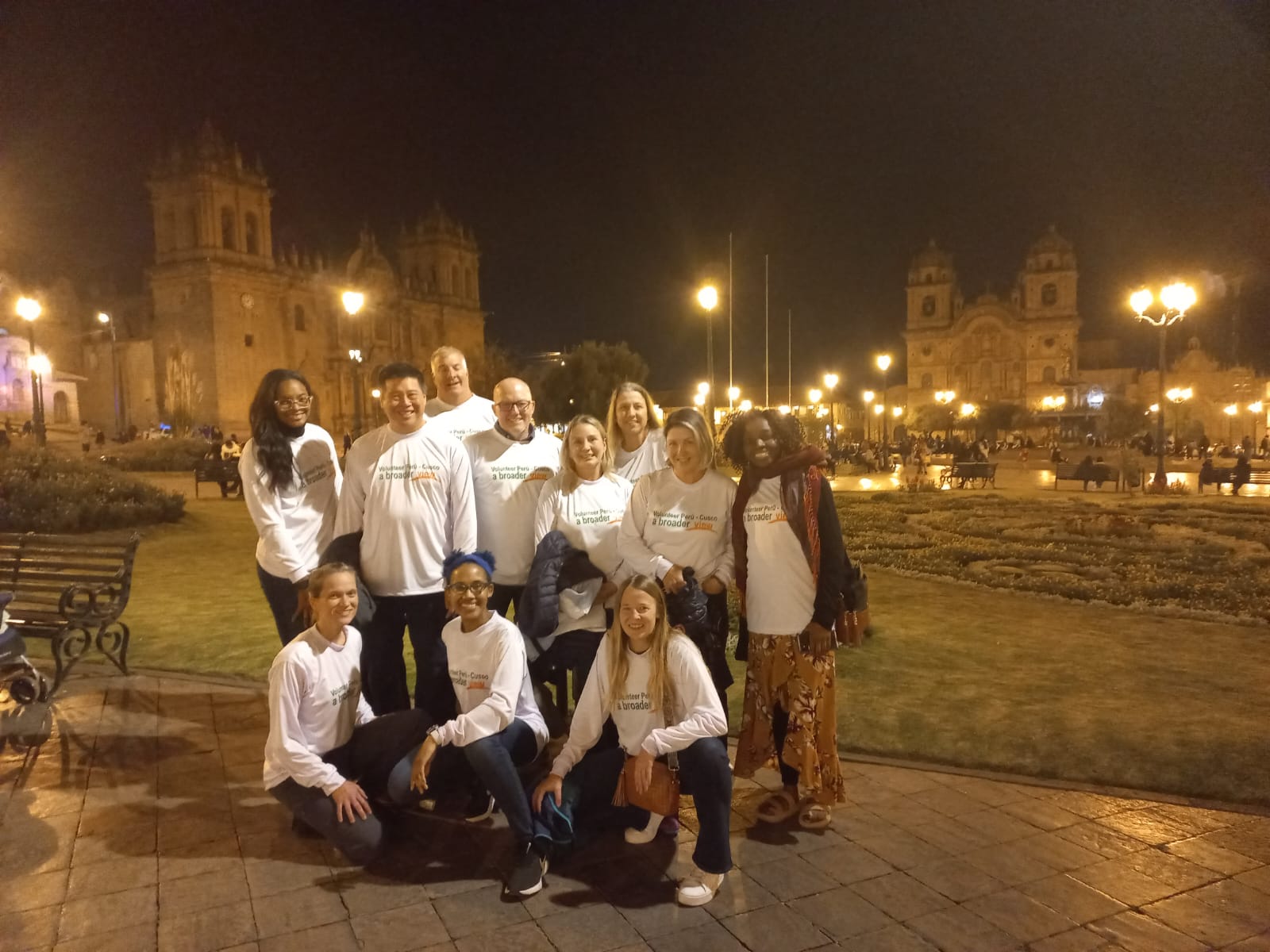
Discover empowering volunteer opportunities in Peru Cusco with www.abroaderview.org. Support sustainable programs and make a positive impact while gaining valuable experiences.
-
Midwives & Obstetricians: Empower Mothers & Babies Abroad

Discover how midwives and obstetricians from abroad can empower mothers and babies through the programs offered by www.abroaderview.org. Make a difference today.



